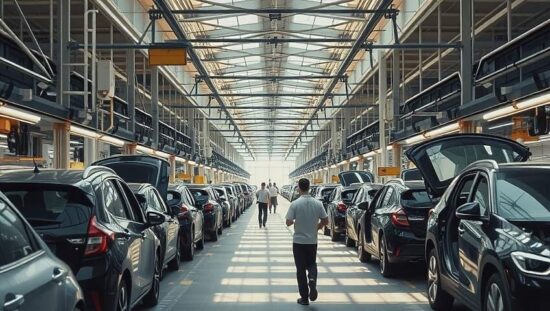The upcoming national automotive dialogue in Lower Saxony is generating significant political pressure, with the state’s CDU leader, Sebastian Lechner, openly challenging the federal government’s commitment to the internal combustion engine beyond the EU’s planned 2035 ban on new registrations. Lechner’s remarks, published in the “Rheinische Post” underscore growing anxieties within Germany’s automotive sector and the potential for a political backlash against the restrictive EU mandate.
Lechner’s call for a reversal of the “internal combustion engine phase-out” isn’t merely a plea for technological flexibility; it represents a direct critique of a policy he argues stifles innovation. “We need an end to the combustion engine ban because prohibitions prevent innovation” he stated, advocating for a shift away from ideological approaches toward a technology-neutral stance. This perspective reflects concerns that the current trajectory risks undermining Germany’s international competitiveness and jeopardizing the livelihoods of countless workers.
Lower Saxony’s prominent role as a central hub for the German automotive industry, with Volkswagen and its extensive network of suppliers representing a critical regional employer, amplifies the stakes. Lechner emphasized the need for a “realistic perspective” within the industry, warning against further regulatory burdens. While acknowledging the imperative of climate neutrality, he strongly questioned the efficacy of the current path and demanded a greater focus on what genuinely contributes to climate protection.
The CDU politician’s call for a broader technological toolkit – including synthetic fuels (“E-Fuels”), hybrid technologies and emerging powertrain solutions – represents a significant departure from the prevailing narrative centered almost exclusively on electric vehicles. His stance is likely to fuel a growing debate within the German government and across the political spectrum and may represent a prelude to a broader reassessment of the EU’s ambitious electrification targets, particularly as concerns grow about the feasibility and societal impact of such a rapid transition. The potential for a political confrontation over the future of the German automotive industry appears increasingly likely.





